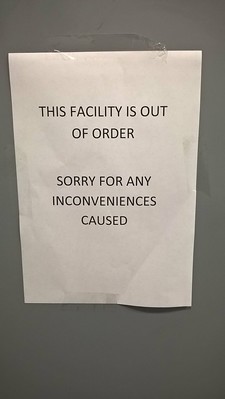Publicly funded institutions have access to large amounts of money. They often have the power of taxation. They can also make or break businesses. As such, integrity is a non-negotiable requirement in public purchasing. Above all else, large-scale spending decisions have to be fair. Public institutions cannot simply bestow large amounts of cash on the recipients they selected behind closed doors, using opaque decision-making processes that heavily favor certain providers and significantly disadvantage others.
The Organization for Economic Cooperation and Development (OECD) is a multi-national economic organization of 36 member nations, including the US. In an OECD publication entitled OECD Principles for Integrity in Public Procurement, the OECD defines a framework for public purchasing. The framework is designed to help auditors detect and also prevent public corruption in purchasing.
The framework includes four major components of a fair public purchasing process. These components include:
- Transparency
- Good Management
- Prevention of misconduct, compliance, and monitoring
- Accountability and control
Lack of transparency in purchasing is cause for alarm
The Administration claims that it gave a $26M no-bid contract to Ellucian for managed IT services because Ellucian owns Banner. Banner is the College’s Enterprise Resource Planning (ERP) system. Ellucian is far from the only provider of these services. It’s probably not even the most experienced provider when it comes to its own product. As a product, Banner has been around for decades, as have Banner consultants. On the other hand, Ellucian was founded in 2012. The company is owned by two venture capital groups. They have no interest in running a managed service provider; they’re simply in this game to make money.
Second, the Administration was engaged in in-depth discussions with Ellucian months before they announced their plans to outsource the IT Department. They provided Ellucian with volumes of information about WCC’s IT operations, its personnel, and its IT expenditures. It allowed Ellucian to write the “scope of work” that was incorporated into the College’s contract with Ellucian. It also allowed Ellucian to write the justification for making a sole-source purchase of the company’s services. Where is the integrity in any of that?
The College Administration also didn’t provide this information to any other potential bidders. They never issued a request for proposals or sought any other competitive bids. The administration made this deal for reasons they have never clearly explained. They took the price Ellucian offered, never considering whether or not there was a less expensive alternative available. We do not know whether or how they negotiated the contract price. The Ellucian contract includes the company’s standard annual price increases. This leads me to believe they never negotiated on price.
That’s a problem for the taxpayers. The WCC Administration gives a $26M no-bid, no-negotiation contract to a company firmly outside of the College’s standard purchasing protocol.
How does WCC rate on Good Management?
I’ve spent many days talking about the inadvisability of using operational dollars to fund capital projects. That particular tactic doesn’t apply to outsourcing IT services, but it does speak to the Administration’s willingness to use its appropriations in ways other than what the public intended. Maybe I’m wrong. I doubt the public approved the 2016 millage so WCC could send $26M out of state and 31 local residents to the Unemployment Office.
I don’t think the public approved WCC’s 2016 millage request with the intention of passing out $2.5M to former employees. Nor do I think the public approved the 2016 millage to fund a never-ending administrative hiring spree. Makes you wonder what they’ll spend the 2020 millage on, doesn’t it?
I’m not an expert on good management strategies, but I’ll say this. For whatever reason, the College President made the Chief Financial Officer the Interim CIO. A CFO presumably has an adequate financial background to perform that role. It is highly unlikely, however, that the same person can simultaneously double as an organization’s CIO. They’re two very different disciplines, and require different experiential and educational backgrounds. If you wouldn’t ask your CIO to take over the organization’s finances, don’t ask your CFO to take over your IT Department.
WCC hasn’t held up well when considering just the first two elements of the OECD framework. When taken on balance, it becomes clear that WCC suffers from repeated failures of leadership.
The public needs to decide if they’re OK with WCC signing up for multi-million dollar no-bid contracts. The Trustees we elected to represent our interests are OK with it; they didn’t raise any serious objections to it.
Voters need to pay attention to what’s happening at WCC
The voters in Washtenaw County need to examine what’s happening at WCC. Personally, I’m not ok with it. Nor am I ok with authorizing the loss of jobs in this county. I’m also not ok with shipping $26M tax dollars elsewhere. If the administration were trying to argue that this move would save money, they’d be wrong. WCC is slated to spend nearly $1M more on IT in FY 20 than it spent in FY19. After saying otherwise, the administration has belatedly admitted that the move wasn’t about saving money. Then again, saving money is not one of this administration’s strengths.
It wasn’t about curing any particular dysfunction in IT, either. Campus Works, a consulting firm that employs former WCC Board Member David Rutledge, clearly stated that the IT Department wasn’t dysfunctional. In fact, the Campus Works report indicated that the Administration – not the IT staff – needed to make changes to improve the IT Department’s function. In the June 4, 2019 public comment farce, even Ellucian admitted that WCC’s IT Department was highly functional. After the sham vote, Ellucian brought workers in from other campuses to see how WCC’s IT Department performed. This wasn’t for evaluation; it was for knowledge transfer.
The public still hasn’t received an explanation of why WCC’s dysfunctional administration felt it necessary (and worthwhile) to tear apart a workgroup at the College that two independent groups identified as being highly functional. The public cannot afford to subsidize this bizarre approach to managing the taxpayers’ investment in our community college.
Send the WCC administration and its Board of Trustees a message on March 10, 2020.
Photo Credit: Gordon Joly , via Flickr.com

















